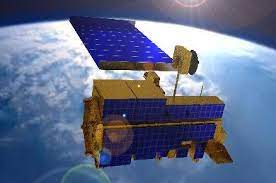Moderate Resolution Imaging Spectroradiometer:

scientists’ have analyzed data generated from the Moderate Resolution Imaging Spectroradiometer and said that climate change has altered the colour of 56 per cent of the world’s oceans.
- The waters in the tropics have turned green and the southern Indian Ocean, in particular, has seen a significant colour change.
- Changes in the ocean colour indicate alterations to the phytoplankton communities – since phytoplankton are essential for most life in the ocean as the base of the marine food web.
- Human eyes are not sensitive enough to differentiate subtle colour changes.
- The oceans appear blue, but the true colour may contain a mix of subtler wavelengths, from blue to green and even red.
- The green hue comes from chlorophyll, a pigment that helps phytoplankton make food.
- A change in colour due to an increase or decline in the population will impact organisms that feed on plankton.
- Though the southern Indian Ocean is seeing a significant change, the waters near India are not following the same trend.
Moderate Resolution Imaging Spectroradiometer (MODIS):
- It is a key instrument aboard the Terra(originally known as EOS AM-1) and Aqua (originally known as EOS PM-1) and Aqua (originally known as EOS PM-1) satellites.
- Terra’s orbit around the Earth is timed so that it passes from north to south across the equator in the morning, while Aqua passes south to north over the equator in the afternoon.
- Terra MODIS and Aqua MODIS are viewing the entire Earth’s surface every 1 to 2 days, acquiring data in 36 spectral bands, or groups of wavelengths.
- These data will improve our understanding of global dynamics and processes occurring on the land, in the oceans, and in the lower atmosphere.




